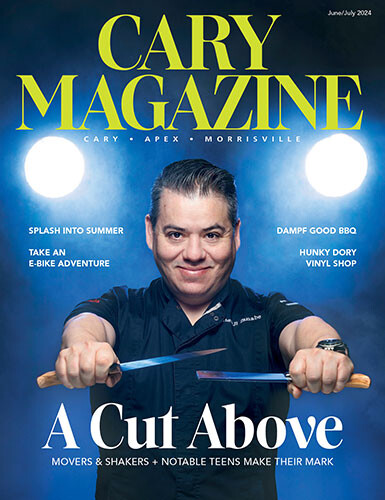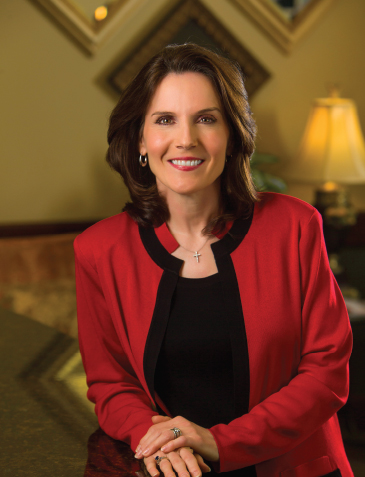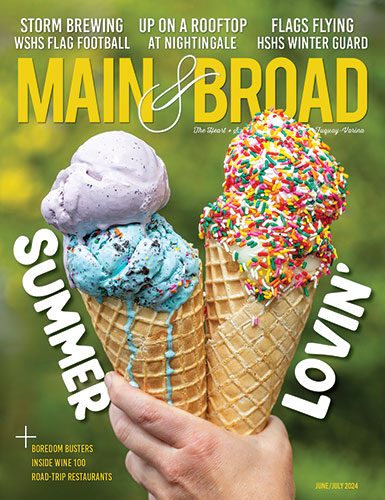Education: Undergrad and medical school, UNC-Chapel Hill; Residency, University of Michigan; Fellowship training, Center for Facial Plastic Surgery, University of Michigan Medical Center
Work: Former assistant professor of facial plastic and reconstructive surgery at Duke University Medical Center; private practice in Cary since 1999
Certifications: Board certified by both American Board of Facial Plastic and Reconstructive Surgery and American Board of Otolaryngology-Head and Neck Surgery
Family: Husband Dr. Joe Cornett; sons Joseph, 19, and Gregg, 17
Hometown: Aiken, S.C.
On values: “Your faith and beliefs are what you lean your ladder on as you climb; they’d better be solid.”
Fun facts: Loves saltwater fishing, snow and water skiing, the Outer Banks, family hikes
Once a year, Cary plastic surgeon Dr. Cynthia Gregg boards a plane to Africa, intent on changing lives.
Her husband, Dr. Joe Cornett, holds her hand while on the plane, because Gregg doesn’t much like to fly. Their two sons have come along on four trips so far, long flights to the diverse land of Nairobi, Kenya, where high rise buildings stand tall, yet cows graze alongside the dirt roads.
When they finally touch down, it’s another 65 kilometers by car to the mission hospital at Kijabe, Kenya, where medical volunteers like Gregg perform surgery; some of their patients have traveled for days to reach the DC-3 plane that flew them to the hospital.
“I don’t know that there are words to adequately describe the sense of joy and purpose you get when you change someone’s life for the better,” Gregg said of her patients in Africa, where those born with cleft lips and palates are societal outcasts.
“It’s almost overwhelming, the emotion of knowing that a one-hour surgery has changed their lives and now they may be accepted by their community.”
The “plastic” in plastic surgery is taken from the Latin “to mold,” notes Gregg, an otolaryngologist who is holds dual board certifications from the American Board of Facial Plastic and Reconstructive Surgery and the American Board of Otolaryngology-Head and Neck Surgery.
She sits on the board of directors for the ABFPRS, and has served as co-chair of its oral exam committee for the past four years. Gregg is also an active Fellow of the American Academy of Facial Plastic and Reconstructive Surgery, which exists to further doctors’ training and raise standards within the specialty. She serves on the Academy’s ethics committee.
Gregg’s annual treks to Africa, including her solo trip to South Sudan last fall, happen with logistical aid from the medical arm of Samaritan’s Purse, the World Medical Mission. WMM and physician volunteers provide all surgical supplies and instruments and most travel at their own expense.
During her trip, she and two other surgeons operated in one room and completed 90 cases in six operating days.
Gregg sees the sharing of her skills as part of her Christian duty.
“Serve; that’s what Christ would do,” she said. “The trips are not easy — you lose your physical comforts — but, how can you not do it? Faith is an amazing journey, and mine grows deeper every time I put myself out there. It’s just the right thing to do.”
In South Sudan, Gregg found a country the size of Texas, but with just 30 miles of paved roads throughout.
“We have poverty here, but there it’s different. They have nothing,” she said. “But they’re strong, and rich in relationships; they have to rely on each other.”
Back in Cary, Gregg runs a private practice quite different from the one she imagined as a child. Always interested in pursuing medicine, she was particularly influenced at age 11 by the first female doctor she ever met, a pediatric oncologist treating her younger brother for leukemia.
“When I went to medical school, I had no intention of being a surgeon,” Gregg said. She even chose surgery as her first clinical rotation, to put it past her.
“But I loved it. I like to use my hands; I used to play clarinet and cross-stitch. And it gives you the ability to fix things, which is instant gratification. It all clicked. For me, it was the best answer to all the things I enjoy.”
Women were scarce in her chosen surgical specialty during Gregg’s residency; one attending physician, a man, called all of the women Karen for convenience. The situation was similar in her fellowship training, although the male doctors were supportive.
“I never thought I couldn’t do anything I wanted to do,” Gregg said, an attitude instilled in her by her parents, one a schoolteacher and the other an engineer.
She’s passing that mindset to her sons. In their home, ebony wood carvings brought back from the family’s missions serve as can-do reminders; one, a gift from Cornett, is a female lion with two cubs.
“The boys were 12 and 14 on their first trip,” Gregg said. “The culture shock came when we got back, and now they have a more global perspective. They look forward to going, both having important roles as members of the team. They assist with patient care, data entry, photography, and patient interviews. They also interact with the patients and their families.”
At home in the U.S., Gregg offers her surgical skills pro bono to survivors of domestic violence, via the Face to Face program administered by the Academy and the National Coalition Against Domestic Violence.
The work has been featured on the Oprah Winfrey Show and in a BBC documentary.
“You don’t have to go to Africa to help,” Gregg noted. “I’ve learned a lot from these ladies, and one man, through Face to Face. From a medical perspective, I’ve learned to never underestimate the impact of a traumatic injury, and how a person associates that scar with the trauma. It’s taught me to be a better physician; we’re treating the whole patient.”
Whether from her Cary office or a remote African hospital, Gregg takes no credit for doing “the right thing.”
“We go (to Africa) and work for two weeks. But we’ve met people who go for two years, or their whole lives. It’s an honor to rub elbows with them,” she said.
“It takes a leap of faith, but the rewards are so much greater than what we give up. Is it better to give than receive? Yes, it really is.”






